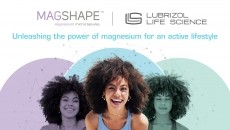Consumers warned of multivitamin flaws
because of lead contamination, lower ingredient levels than stated,
and/or inability to fully break apart for absorption, writes Wai
Lang Chu.
A children's multivitamin was found to contain a high amount of lead and was missing half of the folic acid claimed. In addition one prenatal vitamin supplement could not fully dissolve, suggesting it would not completely deliver its nutrients in the body.
According to Nutrition Business Journal, multivitamins are the most popular supplement in the US, with sales of $3.3 billion in 2002. But in a sample of 40 products selected by ConsumerLab.com, a third revealed signs of poor manufacturing and quality control.
Three popular vitamin water brands had less vitamin C than claimed. A drinkable liquid multi for seniors had less than 20 per cent of its claimed manganese and was also low on vitamin A and folic acid.
One popular general multi contained over 3 mcg of lead per daily serving, exceeding the State of California's lead limit. Although not dangerous alone, the product unnecessarily contributes to daily lead exposure.
Tod Cooperman, president of ConsumerLab.com, said: "Our report shows that problems with multivitamins are common. And since multivitamins are taken regularly for many years, the risk for harm increases."
The Council for Responsible Nutrition (CRN) pointed out however that 15 products made by its member companies passed the testing, demonstrating that good manufacturing practices and attention to development ultimately provide high quality products for the consumer.
The association also pointed out that folic acid is a highly unstable nutrient and the daily recommended intake is small.
And while ConsumerLab.com noted that some doses of certain nutrients exceeded suggested tolerable upper intake levels (ULs), CRN noted that adding more than the labeled amount at the time of manufacture is the only method to guarantee every tablet receives adequate levels of the nutrient and to compensate for the unpredictable degradation effect.
The Council for Responsible Nutrition commented on the results on their website by saying: "ConsumerLab.com's press release is extremely negative, calling attention to the failures, portraying even minor shortages as 'pitfalls' and not giving appropriate recognition to the excellent products that passed the test."
A list of companies that passed ConsumerLab's tests can be seen here.











